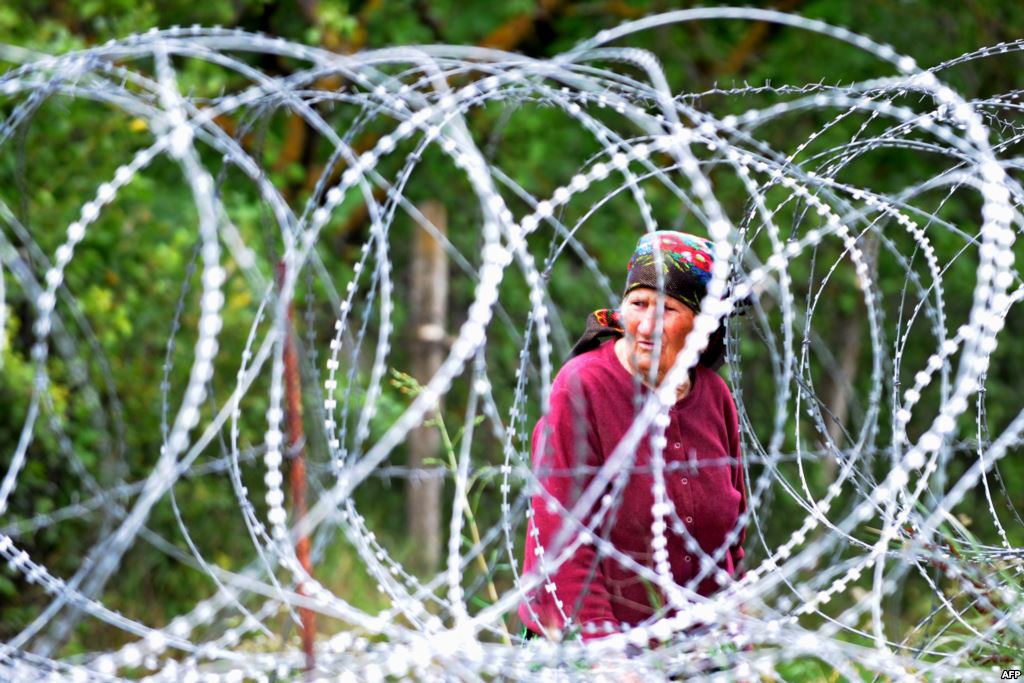Georgian NGO files lawsuit against Russia for violating human rights

The Georgian Young Lawyers' Association (GYLA) has applied to European Court of Human Rights on behalf to people living near the barbed wire fences in one of Georgia’s breakaway regions.
On April 11, GYLA filed a lawsuit against Russia at the European Court on behalf of 19 citizens living in Dvani, a South Ossetia’s village located near the dividing line.
The non-governmental organization claim the 19 citizens’ rights have been violated, which included a violation of peaceful enjoyment of possessions.
At the European Court, the GYLA argued about the citizen’s living conditions (Article 8 of the European Convention), freedom of movement and violation of the right to an effective remedy (Article 13 of the European Convention).
In September 2012 in the Dvani village, Russian and Ossetian ‘border guards’ made and erected barbed wire fences to mark the so-called boundary between Georgian and Ossetian territory. As a result, the border line moved 400-600 metres deeper into Georgian territory.
Due to this fact, more than 50 families’ agricultural land now appeared on the South Ossetia’s controlled territory.
Currently, as a result of installing fences, the livelihood of people living in 23 Georgian villages close to the dividing line has been severely impacted.
Installing barbed wire fences began in 2011 and intensified in February 2013.
 Tweet
Tweet  Share
Share